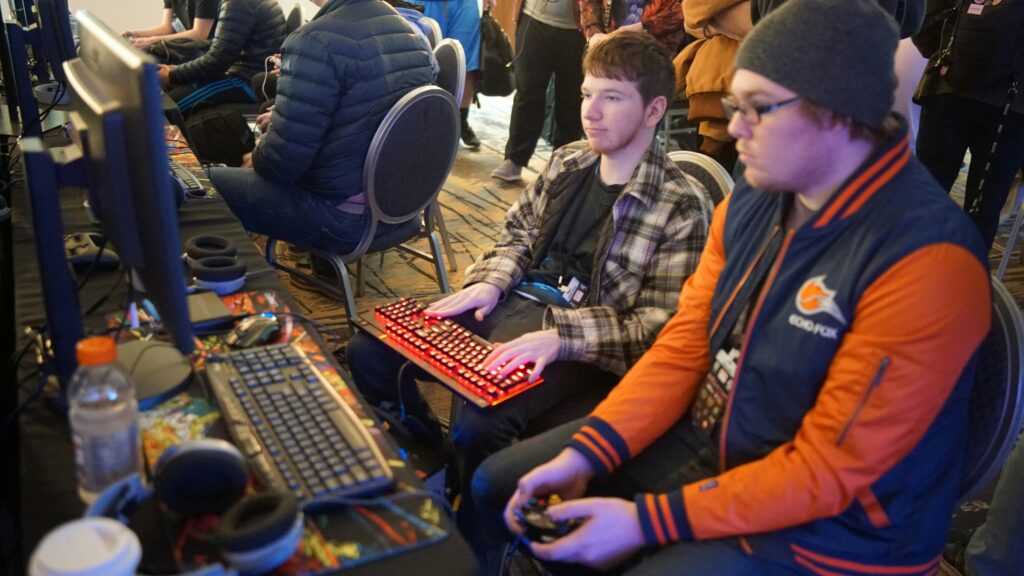Phishing: The Classic Bait and Switch
Phishing is still the go to move for scammers. It’s old school, but it works because people keep falling for it. One of the most common tactics is fake login pages made to look exactly like official gaming sites. The layout, logo, and even the URL might seem right at first glance. But look closer there’s usually one character off, maybe an extra dash or a swapped domain suffix. The goal: make you type in your credentials and hand over your account on a silver platter.
Then there’s the social angle. You’re deep in a raid or chatting in Discord, and someone drops a link offering free in game currency or a beta code. It seems harmless. You click, land on a “login to claim” page, and just like that your account’s compromised. Many of these traps are spread peer to peer, piggybacking off players’ trust in each other.
Here’s how you fight back: always check URLs for subtle misspellings, extra characters, or slight design differences. Don’t log into high value accounts through random links go directly to the site yourself. And if a deal feels weird or rushed, trust your gut. Scammers rely on speed and distraction. Slowing down can save your account.
Fake Items and Currency Scams
In game economies are central to many gaming experiences, but they’ve also become hotspots for scams. When the promise of rare loot or discounted currency sounds too good to be true it probably is. Here’s how to spot the traps and keep your virtual wallet safe.
The Bait: Unreal Deals on In Game Goods
Scammers often advertise unbelievable offers such as:
Rare skins or cosmetic items at half the usual price
Huge bundles of game currency for a fraction of their real cost
Limited time “special offers” pushed through social channels or forums
These deals are often shared via:
In game chats
Reddit threads or gaming forums
Discord servers targeting specific games
Risks of Blackmarket Sellers and Third Party Sites
Blackmarket and shady third party sites are never worth the short term gain. Here’s why:
No buyer protection: If you’re scammed, you’re on your own.
Account compromise: Many sellers require account access, opening the door to identity theft.
Bans and suspensions: Games often detect unauthorized transactions, leading to permanent account bans.
Malware risk: Downloaded “items” can contain spyware or other malicious software.
Red Flags to Watch For
Stay alert by recognizing these common warning signs:
Websites that lack https security or have awkward, misspelled URLs
Demands for upfront payment with no proof of delivery
Sellers refusing to use official trading platforms
Prices that are significantly lower than what’s available through legitimate sources
Safe Trading: Stick to Verified Marketplaces
Protect yourself by only trading and purchasing through authorized platforms:
Use built in marketplaces (e.g., Steam Market, official in game stores)
Check user reviews and seller ratings when peer to peer trading is allowed
Avoid sharing account credentials at any step in the transaction
If you’re ever unsure, walk away. No item is worth losing access to your account or compromising your personal data.
Pro Tip: When in doubt, refer to the game publisher’s official support page for trusted vendors and trading guidelines.
Account Takeovers and Identity Theft

Keeping your gaming account secure is more critical than ever. Cybercriminals are constantly evolving their methods, making it easy for inattentive players to fall victim. Here’s how these attacks typically unfold and how to stay one step ahead.
The Hidden Danger of Reused Passwords
Reused login credentials are one of the biggest vulnerabilities in the gaming world. If you use the same email and password across multiple sites, a data breach on a less secure platform can jeopardize your gaming account.
What can happen if you reuse passwords?
Hackers use credential stuffing automated scripts that try your details across popular platforms
Once in, attackers may change your login info, access payment methods, or delete progress
Recovery is often complicated, especially on less responsive platforms
Two Factor Authentication: Your Best Defense
Want a quick and powerful way to protect your account? Enable two factor authentication (2FA). This adds an extra step to the login process, requiring a unique code from your phone or email to gain access.
Why 2FA matters:
It renders stolen passwords useless without the second verification step
SMS, app based, or email verification options are available on most major platforms
It’s the best first move to lock down your account
The Real Underground Market for Accounts
Stolen gaming accounts aren’t just personal losses they’re big business. Entire marketplaces exist where hacked accounts are bought, sold, and traded.
What happens to stolen accounts?
They’re sold on dark web forums or encrypted chat groups
High level accounts or those with rare items fetch high prices
Once sold, they’re often reskinned, stripped of assets, or used for further scams
Stay safe by:
Using strong, unique passwords for each account
Changing your password immediately after any suspicious activity
Monitoring your login history if a platform offers that feature
Don’t wait until your account disappears take these steps today to protect what you’ve built.
DDoS Attacks in Competitive Gaming
Distributed Denial of Service (DDoS) attacks are becoming increasingly common in competitive gaming. These attacks don’t just disrupt gameplay they can unfairly decide match outcomes and even endanger your privacy.
How DDoS Attacks Work
Attackers flood your internet connection with excessive traffic, making it unstable and unplayable. This tactic is often used to:
Force players to disconnect or lag out in ranked matches
Gain an unfair advantage in competitive environments
Sabotage livestreams to ruin a creator’s session
Whether you’re mid tournament or live in front of an audience, all it takes is a targeted flood to force a rage quit.
Why Public IPs Are Vulnerable
Most gamers don’t realize how exposed their home network can be:
Public IP addresses are easily accessible, especially during livestreams
Third party voice chat services (like Discord or Skype) can sometimes leak IPs
Gaming consoles and PCs without proper firewall settings open pathways for attackers
How to Stay Protected
You don’t need to be a network engineer to safeguard your gaming sessions. A few key steps can offer powerful protection:
Use a VPN: A Virtual Private Network masks your real IP address, making it harder for attackers to target you
Optimize Network Settings: Enable router firewalls, disable UPnP, and separate gaming traffic from other devices
Avoid Sharing Network Info: Never give out anything that could tie your game identity to your location or home network
For a full breakdown of tools and defense strategies, check out this detailed guide on DDoS attack protection.
Recap: What You Can Do Today
Activate a reputable VPN service before competitive matches
Review and tighten your router’s security settings
Be mindful when sharing or streaming online your IP should stay private
DDoS attacks may be intimidating, but with the right precautions, you can keep your connection strong and your victories fair.
“Too Good to Be True” Giveaways
Scam artists are getting better at playing pretend. One common trick? Impersonating popular streamers or big name game brands with fake giveaways. You’ll get messages that look official “You’ve won a PS5!” or see cloned social accounts promising free in game loot. If it feels rushed or weirdly lucky, it’s probably fake.
The first step to avoid this garbage is to verify what you’re looking at. Official giveaways are announced on verified platforms streamer bios, major YouTube channels, or the game’s actual website not in sketchy DMs or comment threads. Double check usernames, look for that verification check, and avoid links that use URL shorteners or weird domains you’ve never heard of.
Real creators tend to keep things simple and public. If a giveaway is legit, it’ll be transparent: think standardized rules, public posts, and no ask for sensitive info. They’ll never tell you to pay for shipping or “verify your identity” through a random link. When in doubt, back out and do a quick search. Scammers rely on people moving fast and thinking slow. Flip that equation, and you just saved yourself a headache.
Key Tips for Staying Scam Free
The basics still matter. First, never share your login details not even with people you game with every day. Today’s buddy can be tomorrow’s problem, especially when real money or rank is involved.
Second, if you’re downloading mods, game tools, or anything promising better performance or free stuff, triple check the source. Trusted platform only. No sketchy forums. No weird links.
Also, scammers adapt as fast as game devs push updates. Keep a pulse on what’s trending in scam tactics. Reddit threads, YouTube updates, security blogs they’ll help you stay ahead.
And don’t forget the network side of things. DDoS attacks can mess with more than just your game they can fry your whole connection. Brush up with this guide on DDoS attack protection, and revisit it once in a while. Defense only works if it’s set up right and kept up to date.



